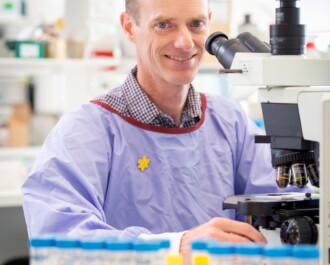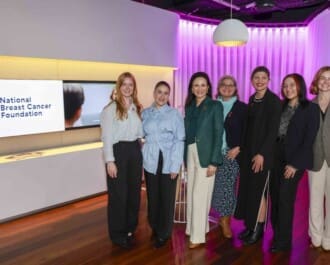
Clinical trials are about to begin at the Mayo Clinic in the US for a vaccine that could help the body fend off certain types of breast, ovarian and lung cancers.
Researchers have been studying cancer vaccines for decades, with the aim of using the vaccine to teach the body’s immune system how to fight cancer.
Researchers think the vaccine, known as TPIV 200, will be able to prevent tumours recurring in people who have already had specific types of cancer.
Unlike traditional vaccines, which are used to prevent illnesses in healthy people, the cancer vaccines in development are therapeutic, meaning they are used after a patient has been diagnosed with cancer – to prevent on the cancer returning in other parts of the body.
Another key difference is that cancer vaccines have to attack complex cancer cells, which divide rapidly and can hide from the immune system.
Therein lies the challenge; when cancer first establishes itself in the body, it has to learn how to get around the immune system.
So the vaccine would also include immune-boosters, such as a ‘checkpoint inhibitor’ treatment, which helps the immune system recognise cancer cells as foreign invaders, providing a one-two punch against the disease.
NBCF-funded Dr Clare Slaney is developing an exciting new treatment which involves a virus-based vaccine as well as a transfusion of genetically modified white blood cells to attack cancer cells.
She believes that once administered, the treatment could potentially remain effective even after the primary tumour is eradicated, eliminating any remnant or newly arising tumour cells.
Her research is particularly important as the threat of cancer recurring in other organs is a constant worry for those who have already survived an initial diagnosis of breast cancer.
More News Articles
View all News


